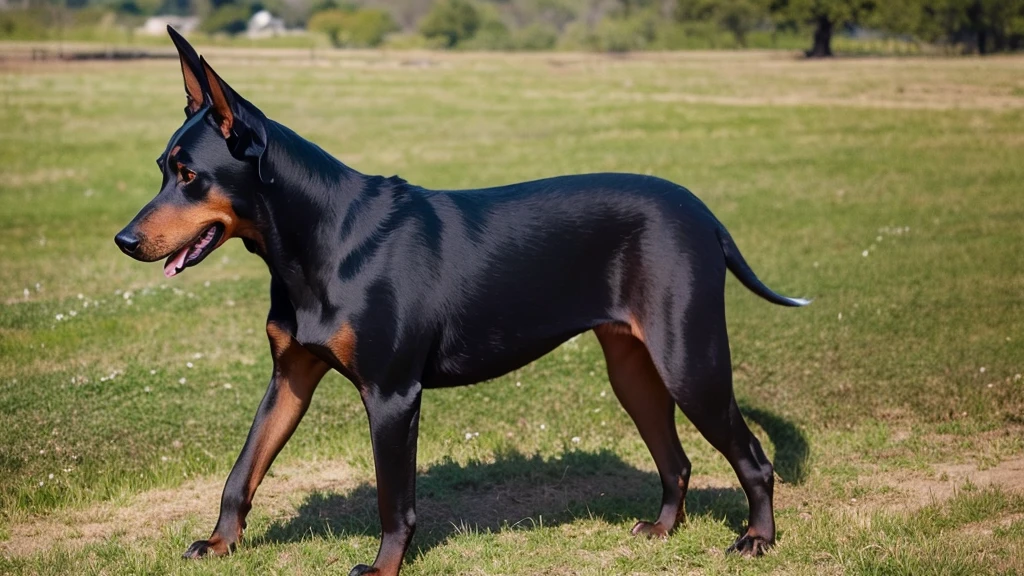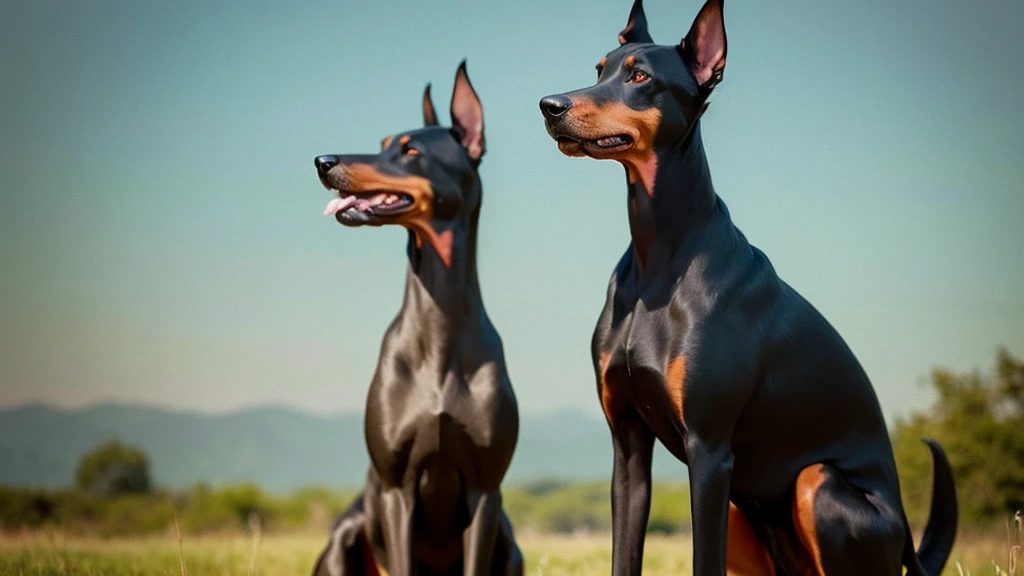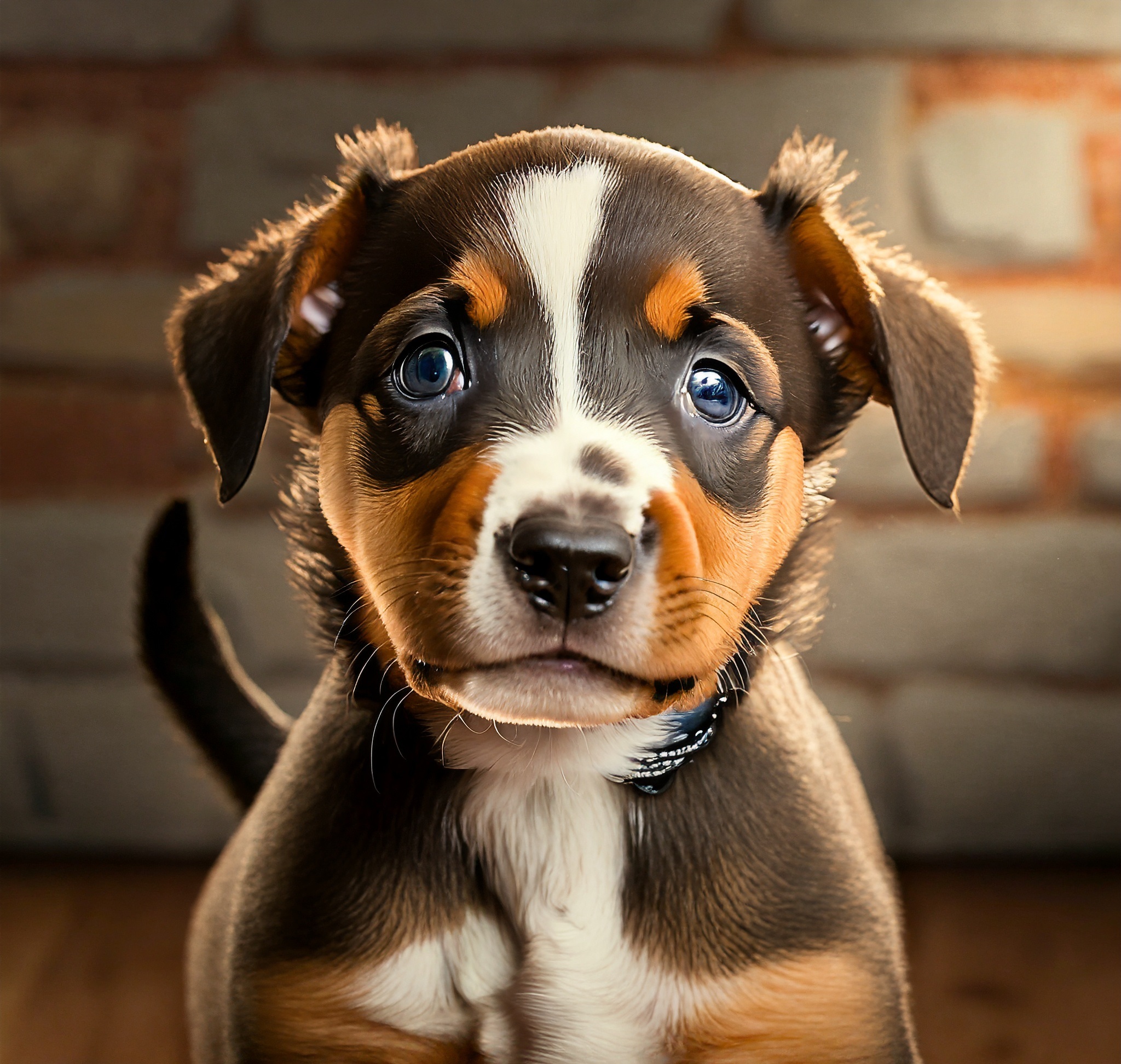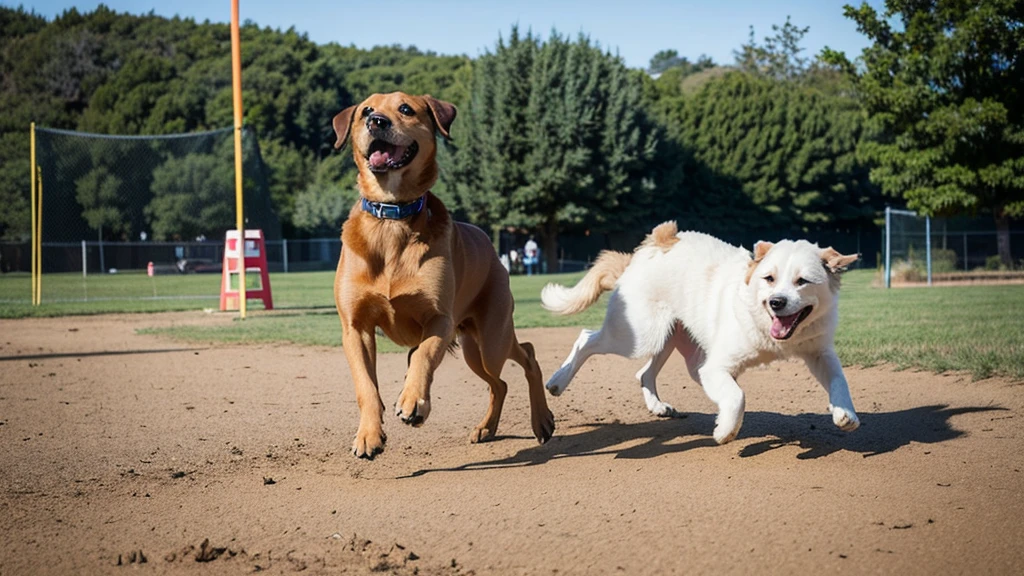The Doberman is a dog breed known for its elegance, intelligence, and loyalty. Originally bred as guard dogs, Dobermans are strong and athletic with endless energy. They are also loving and excellent family pets, provided their owners can maintain an active lifestyle.
Physical properties
A Doberman Pinscher boasts a medium size and a square build. They have a regal appearance and an appearance of endurance and speed. They are alert and attentive, which makes them excellent guard dogs.
Health
Dobermans are generally healthy dogs, but they can be prone to certain health problems such as bloat (indigestion), heart problems and a spinal condition called Wobbler Syndrome. Responsible breeders screen their breeding for these problems so they don’t pass them on to future generations.
Characteristics of the Doberman
Class: Working group
Colors: black and rust, blue and rust, fawn and rust, red and rust, black annealed and white
Size: Medium to Large (Height: 26-28 inches (male), 24-26 inches (female); Weight: 75-100 pounds (male), 60-90 pounds (female))
Other characteristics: Slim, graceful body, long muzzle, floppy ears (although some owners crop them), long tail (although some owners crop them), smooth, short coat, life span 10-13 years.
History
Louis Dobermann, a tax collector in Germany, bred the Doberman Pinscher around 1890. He needed a protective dog for his collections. The Doberman’s exact origins are unknown, but it’s believed Dobermann deliberately crossed several breeds to create a dog that met his needs. These breeds likely included Rottweilers, German Pinschers, and Black and Tan Terriers.
The Doberman’s intelligence and athleticism have made them recognized worldwide as working dogs. Today they are popular as show dogs, therapy dogs, service dogs, guard dogs, and pets.

Personality and temperament
Doberman Pinschers shine with their sweet personalities, balanced temperaments, and unwavering loyalty. They become fantastic companions for children when properly socialized. Their intelligence makes them highly trainable, but shyness or aggression can develop if not addressed early on.
Care
Doberman Pinschers are short-haired and low-maintenance. A few minutes of daily brushing and a weekly bath will usually keep their coat healthy. Don’t forget to add regular nail clipping, teeth brushing, and ear cleaning to their grooming routine
Training
Early socialization and basic obedience training are essential for Dobermans. Their intelligence makes them easy to train, but they can also be stubborn if not trained consistently.
Important information for potential owners
Dobermans are prone to certain health problems. Responsible breeders screen their dogs for these issues.
Dobermans are very active and need plenty of exercise. They are not suitable for living in an apartment.
Find a Doberman from a reputable breeder who breeds for health, temperament, and appearance. Rescue Dobermans are also a great choice.
Early socialization and basic obedience training are important for Dobermans.
Dobermans can be great companions, but they are not the right breed for everyone. If you are looking for a smart, loyal, and energetic dog, the Doberman may be the right choice for you.



